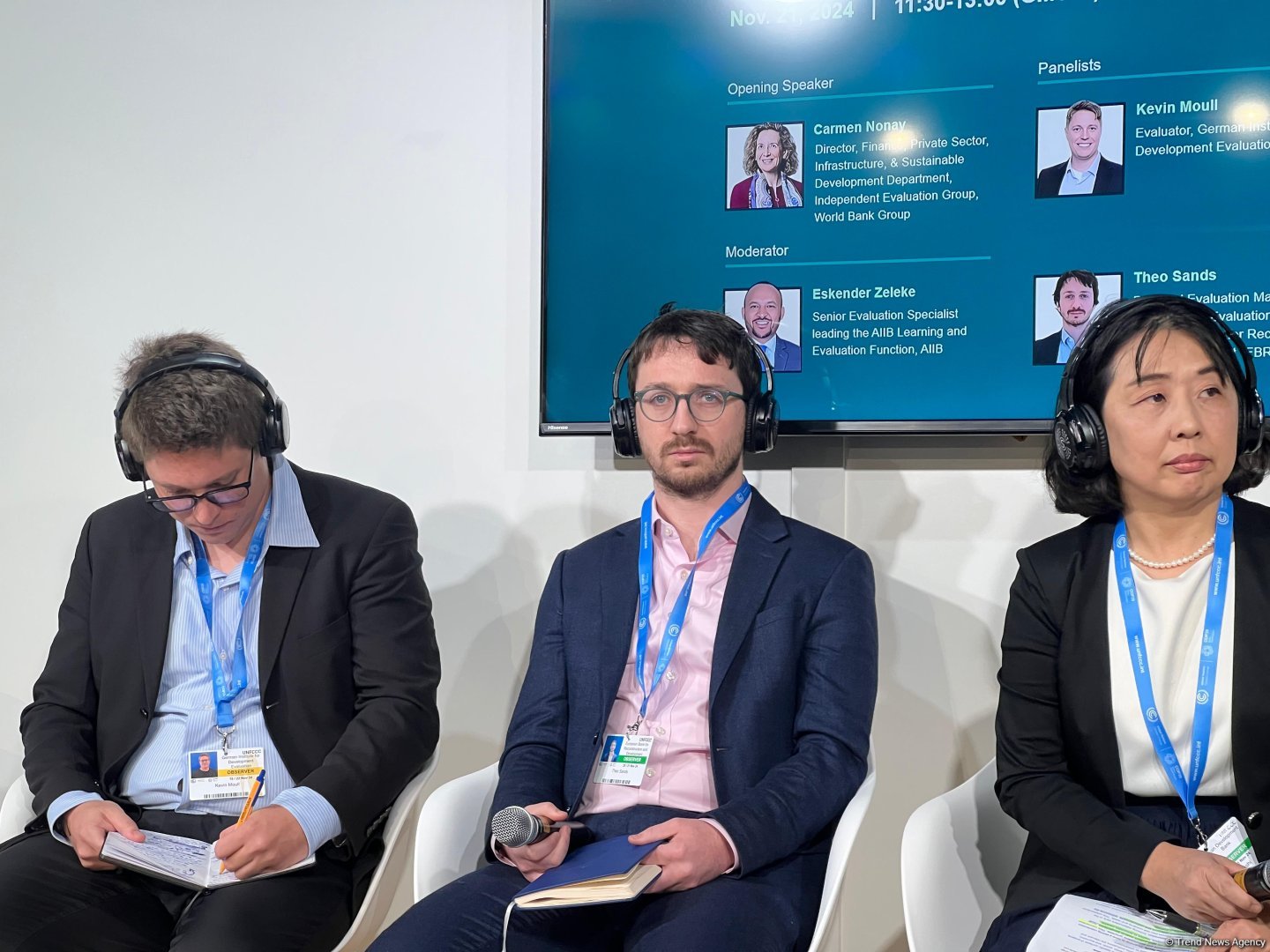BAKU, Azerbaijan, November 21. The European Bank for Reconstruction and Development (EBRD) is reassessing its Green Finance Strategy to drive systemic change in climate financing, said Theo Sands, Principal Evaluation Manager at the EBRD’s Independent Evaluation Department, during a panel discussion at COP29, Trend reports.
The session, hosted by the Asian Infrastructure Investment Bank (AIIB), explored how evidence can shape effective climate finance strategies.
Sands explained that the EBRD’s strategy aims to transition from mainstreaming green finance into its operations to fostering a systemic approach. "We’re not just focused on immediate outputs and outcomes from the EBRD’s green financing but also on creating green investment opportunities for other stakeholders, particularly the private sector," he said.
With EBRD financing covering an estimated 2% of the climate financing needs in its countries of operation, the focus shifts to enabling the remaining 98% of funding, largely expected to come from private sector investments. "We must ask how we can maximize our contribution while unlocking additional investments," Sands emphasized. He cited policy dialogue, enabling investments, and market confidence-building as tools to attract private investment, underscoring the need for demonstration effects to encourage further engagement.
However, he noted significant challenges in assessing the systemic impact of the EBRD’s initiatives. While it’s straightforward to measure CO2 reductions from tangible projects, gauging changes in investor confidence and market perceptions is far more complex. "The real question is how our investments influence investor attitudes in countries like Uzbekistan, Azerbaijan, Jordan, and Georgia. Are we fostering markets that can eventually thrive without MDB intervention?" he asked.
Timing is another critical factor in the evaluation process. Sands highlighted the delicate balance between feeding into the next climate finance strategy and allowing sufficient time to assess systemic and behavioral changes. "Systemic change takes time. We’re constantly navigating the tension between delivering actionable insights and capturing long-term impacts," he explained.
To address these challenges, the EBRD is narrowing the scope of its evaluation to focus on realistic outcomes while linking systemic changes to organizational processes. Sands emphasized the importance of examining how projects are designed and decisions made, ensuring systemic considerations are embedded from the outset.







